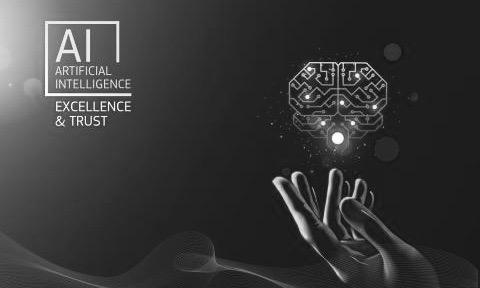Regulation of artificial intelligence – ethical and fundamental rights aspects
On 20 July 2021, the Ministry of Justice of the Republic of Slovenia will host a virtual conference focusing on the effective protection of fundamental rights in the regulation of artificial intelligence in Europe and beyond. The event will be moderated by Dr. Maja Bogataj Jančič, LL.M., LL.M., founder and head of the Institute for Intellectual Property, who is also the Co-Chair of the Data Governance Group at the Global Partnership for Artificial Intelligence (GPAI).
The first panel will focus on the EU perspective, in particular the Commission’s proposal for an Artificial Intelligence Act. The first panel will host following speakers:
– Michael O’Flaherty, Director of the Agency for Fundamental Rights
– Dr Joanna Bryson, Professor of Ethics and Technology, Centre for Digital Governance at Hertie School,
– Miha Lobnik, Advocate of the Principle of Equality in the Republic of Slovenia and member of the Equinet Executive Board,
– Kilian Gross, Head of Unit on Artificial Intelligence Policy Development and Coordination, DG CONNECT, European Commission
– Dr Joanna Bryson, Professor of Ethics and Technology, Centre for Digital Governance at Hertie School,
– Matthias Spielkamp, Co-founder and Executive Director, AlgorithmWatch
Catelijne Muller, LL.M., Co-founder and President of ALLAI.
The second panel is an international perspective with the aim of comparing the approaches of various regional and international organizations and promoting their cooperation in this field. The second panel will host following speakers:
– Louisa Klingvall, Team Leader in the Fundamental rights unit, DG Justice and Consumers, European Commission,
– Dr David Leslie, Ethics Theme Lead at the Alan Turing Institute, CAHAI Bureau Member,
– Karine Perset, Head the AI Unit of the OECD Division for Digital Economy Policy (AI Policy Observatory, AI Network of Experts),
– Dr Marielza Oliveira, Director for Partnerships and Operational Programme Monitoring, UNESCO,
– Prof Dr John Shawe Taylor, Director of IRCAI – International Research Centre on AI under the auspices of UNESCO.
The Grand Board of the European Union Intellectual Property Office (EUIPO) finally ruled that the figurative sign ‘COVIDIOT’ cannot be registered as an EU trademark.
The 4th Open Knowledge Day took place on Tuesday 17 October 2023, with an accompanying workshop on 18 October 2023. This year it was organised by the Open Data and Intellectual Property Institute (ODIPI) and supported by Knowledge Rights 21 (KR21).
We invite you to the fourth Open Knowledge Day and the workshop, which will take place this year within the framework of the programme and with the support of Knowledge Rights 21. The event will bring together experts from different European countries to discuss two topics: the first part will deal with the legal basis for data analytics, which is a key part of machine learning and related artificial intelligence, and the general exception for research. In the second part, open science in theory and practice will be presented both in Slovenia and in some Western Balkan countries. Representatives of research and educational institutions from Slovenia and the Western Balkan countries, as well as interested members of the public, are invited to attend.
Dr. Maja Bogataj Jančič, a renowned expert in copyright law, has joined the Berkman Klein Center for Internet & Society at Harvard University, where she will serve as an affiliate researcher for the next two years.





